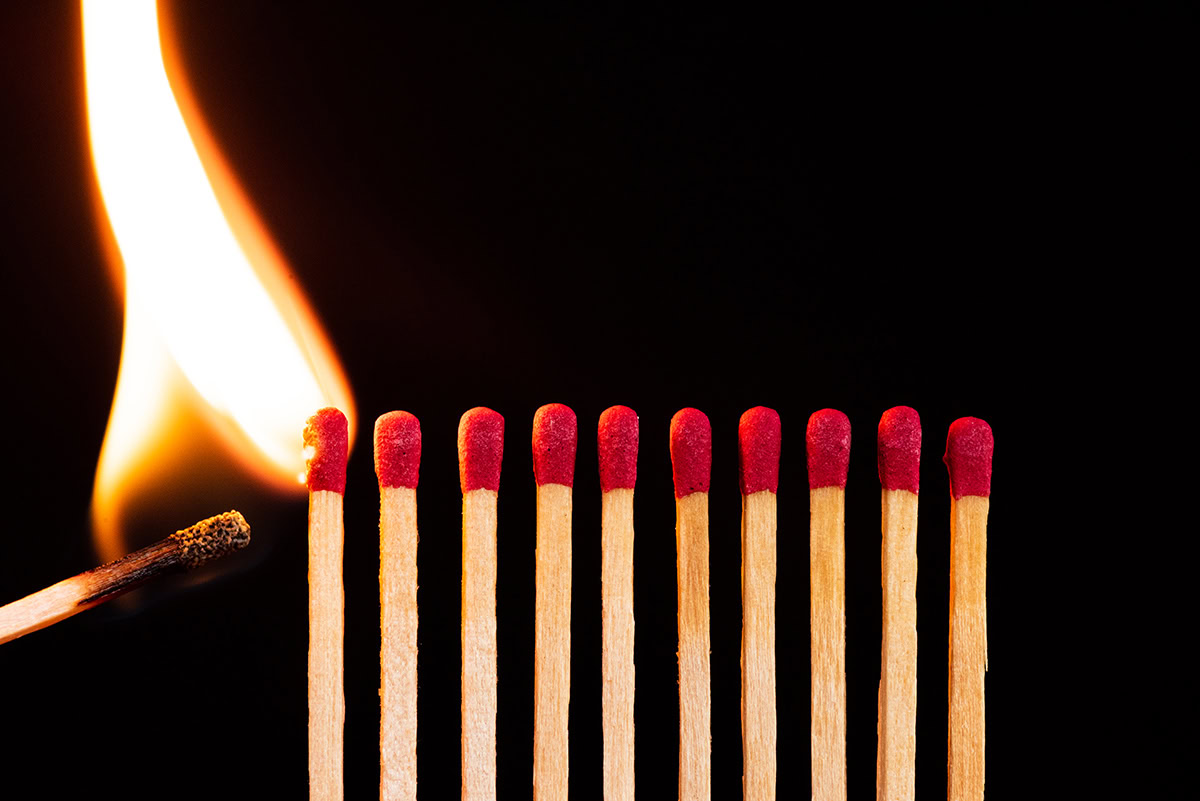Ever snap at someone you love—partner, friend, or coworker—only to regret it moments later? This is emotional reactivity. It often makes a situation worse instead of better. And it leaves you wondering: How do I stop overreacting?
“Emotional reactivity is when you’re feeling stressed or emotional, and you react in an impulsive or emotional manner,” says psychologist Rachel Goldman, Ph.D., clinical assistant professor in the department of psychiatry at NYU Grossman School of Medicine.
These outbursts are often disproportionate to the situation, leaving us with strained relationships and lingering feelings of guilt.
When Tiny Things Feel Massive—and Are Maddening
Emotional reactivity is a quick, intense reaction that’s misaligned with the situation or issue at hand. “Reacting to something with an emotion is not emotional reactivity,” says Rachel Wright, L.M.F.T., a psychotherapist specializing in relationships. “Emotional reactivity is when the reaction is out of proportion.”
Examples: You snap at someone for interrupting, assume the worst in a conversation, or become angry when plans don’t go your way. These reactions aren’t just frustrating for others. They’re also rooted in stress that puts our minds and bodies into overdrive.
GO DEEP: When “You’re Overreacting” Isn’t Some Pass-Agg Comment, But Reality
All products featured on Mental have been selected independently and editorially. When you buy from our links, we may earn a commission.
Sign up for our free newsletter
Legit tips and cool copes, delivered straight to your inbox.
By completing this form you are signing up to receive our emails and can unsubscribe anytime.
4 Signs You Could Be Prone to Overreacting
Jumping to conclusions before hearing someone out. Saying something hurtful in the heat of the moment. Assuming someone else’s behavior is rude or dismissive. Letting minor inconveniences ruin your day. Sound familiar? All are hallmark signs of emotional reactivity. That said, recognizing these patterns is the first step toward change.
How Your Words Cause Wounds
Emotional reactivity can damage relationships in every part of life—from romantic partnerships to friendships and workplace dynamics. “If you’re someone who easily gets into arguments or confrontations with others,” says Dr. Goldman, “this could be a sign that emotional reactivity is more troublesome or damaging for you.”
In romantic relationships, snapping can leave your partner feeling unappreciated or unloved. At work, it can make you seem unreliable or volatile, jeopardizing promotions or even your job. In friendships, overreacting may push others away, leaving you feeling isolated.
The Science Behind the Snap
Emotional reactivity is rooted in our biology. When faced with a stressor—whether real or perceived—our bodies go into fight-or-flight mode, releasing stress hormones like cortisol. This can cause us to lash out before thinking clearly.
RELATED: How to Get Ready Fast When You’re. Just. Not. In the Mood
Chronic stress takes a toll on both mental and physical health. High cortisol levels are linked to inflammation, which can lead to serious health conditions over time. In fact, research suggests that emotional reactivity may even shorten our lifespan. Motivation enough to work on managing our reactions!
Your #1 Tool to Stop Overreacting? The Pause Button
The best way to manage emotional reactivity is to pause before responding. “Slowing down, or even taking a pause, before you react allows you to gauge the situation a bit better,” says Dr. Goldman.
Try this: Take a deep breath—inhale for four seconds, exhale for six—and ask yourself, “Am I reacting to the situation or my emotions?” If possible, step away to give yourself time to cool off before returning to the conversation.
When Tempers Flare, Use This Script to Stop Overreacting
Strong relationships are built on communication. That means listening actively and choosing words carefully, even when emotions are high. “When emotions come up in friendships or relationships,” Wright advises, “share them and repair anything that needs to be repaired.”
Instead of lashing out, try calmly expressing your feelings: “When you [action], I feel [emotion].” This approach fosters understanding and helps avoid unnecessary conflict.
Know Your Anger Triggers
Certain patterns or situations may repeatedly trigger emotional reactions. Identifying these triggers can help you stay grounded in the moment.
Dr. Goldman recommends reflecting on past moments of emotional reactivity to understand what caused them. Did you feel unheard, undervalued, or stressed? Knowing your triggers makes it easier to anticipate and manage your response next time.
How to Fix the Damage (And How to Stop Overreacting for Good)
Even when you lose your cool, it’s possible to repair the damage. “Apologize sincerely and own your reaction,” suggests Wright. Try saying, “I overreacted, and I’m sorry. I was feeling [emotion] and didn’t express it well.”
Taking accountability shows maturity and reassures others that you’re committed to improving your behavior.
GOTTA READ: 11 Best Products for Thinning-Hair
Calm Words Create Stronger Bonds
Managing emotional reactivity isn’t just about avoiding conflict. It’s about building deeper, more fulfilling relationships. By staying calm, you create an environment of trust and respect, which strengthens bonds with loved ones, coworkers, and friends.
And the benefits aren’t just emotional. Reducing stress can improve physical health, boost mood, and even help you live longer, according to one study published in The Journals of Gerontology.
Your Goal: Daily Progress, Not Perfection
Remember, managing emotional reactivity is a journey. Some days will be easier than others. But every pause, every thoughtful response, and every repaired relationship is a step toward a calmer, more connected life.






